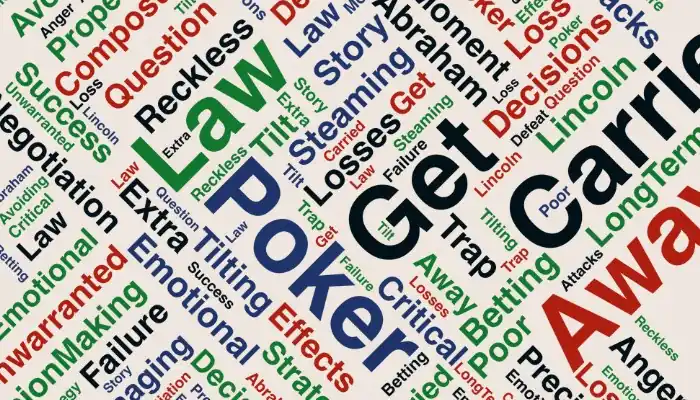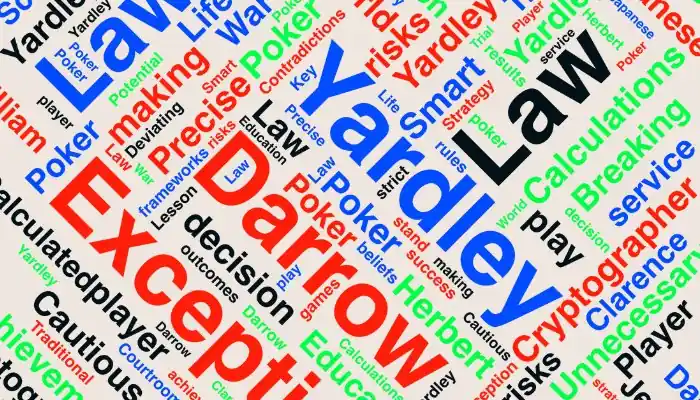All players, even the best, experience losses. In poker and even in law, sometimes luck isn’t on your side, and despite playing precisely and correctly, the desired outcome isn’t achieved. The main lesson is that losing is part of the game, and how you manage it is what makes the difference.
The “Steaming” Trap
When a player loses several hands in a row, they might try to recover their losses with hasty decisions and reckless betting. This tendency to play carelessly after losing, known as “steaming” or “tilting,” ultimately leads to even more losses. Similar behavior can be observed in the legal world; when a lawyer faces an unfavorable ruling or witness, they might lose control and make emotional decisions that cause serious harm to their case.
Stories of Tilt in Law
One of the most interesting examples in this regard is a famous story about Abraham Lincoln. Lincoln was defending a client in court who was on trial for biting off another man’s nose. A witness claimed to have seen the incident. Lincoln cleverly aimed to show that the witness had been looking at the scene from the wrong angle and could not have seen the event. Everything was going in Lincoln’s favor, until he asked one extra question: “How can you say the man bit the other’s nose?” The witness’s shocking response was: “Because I saw him spit it out.”
This is an example of the effects of an “extra question” that leads to failure at a critical moment.
Tilt Effects in Law
Lawyers who lose their composure when faced with a defeat or setback in a case often make poor decisions afterward. Unwarranted attacks on a witness or judge, anger during negotiations, or overreactions usually do nothing but weaken the lawyer’s position.
Key Lesson
Successful players and lawyers understand that losses are a part of every competition and cannot be avoided. However, the most important point is that losses should not lead to a loss of composure or poor decision-making. Properly managing defeat and focusing on the next steps can make a significant difference in outcomes. Ultimately, real skill lies in the ability to move forward with a precise strategy and maintain focus on long-term success.
This piece does not suggest that lawyers should deceive or hide the truth, but rather that they should adopt the right strategy and avoid making emotional decisions.
Source: Lawyers’ Poker: 52 Lessons that Lawyers Can Learn from Card Players: Lubet, Steven: 9780195369014: Amazon.com: Books. (n.d.). Retrieved June 15, 2024, from.




